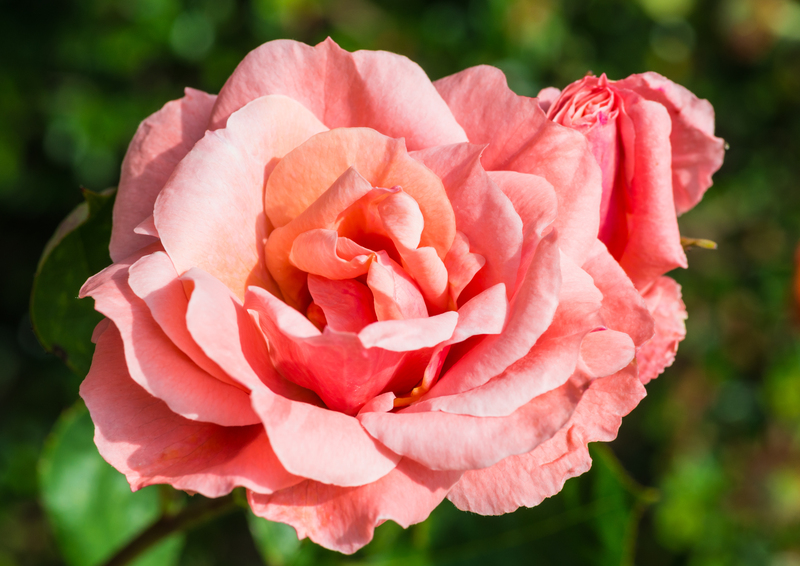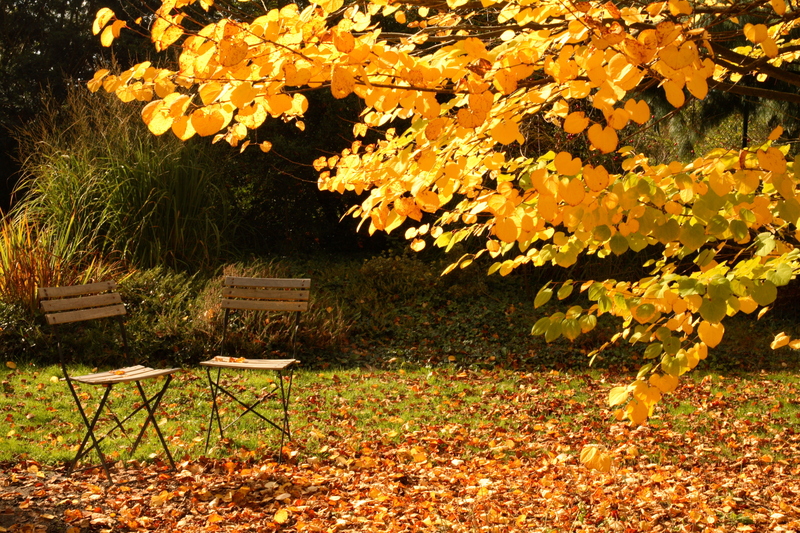Embark on Your Gardening Adventure with These 9 Tips
Posted on 24/05/2025
Embark on Your Gardening Adventure with These 9 Tips
Are you ready to start your very own gardening journey? Whether you are dreaming of lush vegetables, vibrant blossoms, or simply a peaceful green retreat, gardening can be relaxing, rewarding, and even life-changing. However, if you are new to this beloved pastime, knowing where to begin can feel overwhelming. That's why we've compiled nine essential tips to help you start gardening successfully. From choosing the right soil to understanding plant needs, these expert recommendations will set you on the path to a thriving and joyful garden.
1. Start Small and Choose the Right Location
A common mistake among novice gardeners is being overly ambitious. While excitement is great, it is best to start with a manageable garden space. This allows you to learn, adapt, and not feel overwhelmed.
- Pick a spot with plenty of sunlight. Most vegetables and flowers thrive in areas that receive at least 6 hours of sun per day.
- Ensure easy access to water and tools to make maintenance simpler.
- Be mindful of nearby trees or shrubs that may compete for water and nutrients.
Choosing the right spot for your first gardening adventure can make all the difference in your success and enjoyment!

2. Select the Best Soil for Healthy Plants
Soil is the foundation of any successful garden. Great soil translates to healthy, vigorous plants. Before planting, take time to assess and improve your soil:
- Test your soil: Check its pH and nutrient levels. Many local garden centers offer testing kits.
- Amend as necessary: Depending on what you are planting, you may need to add organic matter such as compost, manure, or peat moss to enrich your soil.
- Good drainage: Make sure your plot doesn't hold water. If needed, consider raised beds or improve drainage with sand or organic material.
Remember, investing in soil health now sets the stage for lush veggies, fruits, and flowers later.
3. Pick Easy Plants to Kickstart Your Garden
When you're new to gardening, choosing low-maintenance plants is a smart move. These plants are more forgiving, helping boost your confidence and success rate.
- Vegetables: Radishes, lettuce, carrots, and beans are perfect for beginners.
- Flowers: Marigolds, sunflowers, zinnias, and cosmos are hardy and colorful starter choices.
- Herbs: Basil, mint, chives, and parsley flourish in small containers or garden plots.
Start with a few varieties, watch how they grow, and expand your gardening experience as you gain confidence.
4. Understand Your Plants' Needs
Every plant comes with its own set of requirements. Taking the time to read plant tags or seed packets can mean the difference between thriving and struggling greenery.
Key factors to consider:
- Sunlight needs - full sun, partial shade, or full shade?
- Watering schedule - keep soil moist, but avoid waterlogging plants.
- Harvesting times for edibles
- Days to maturity and peak blooming periods
By learning about and respecting what your plants need, you'll set up your home gardening experience for ongoing success.
5. Learn to Water Correctly
Watering may seem like a simple gardening chore, but there are effective techniques that can preserve plant health and conserve water. Here are a few guidelines:
- Water early in the morning to minimize evaporation and fungal issues.
- Use a soaker hose or drip irrigation to deliver moisture directly to roots, where plants need it most.
- Check soil moisture by sticking your finger 1-2 inches into the dirt, watering only when it feels dry.
- Avoid overhead watering to prevent leaf disease.
Mastering the art of watering will make your first garden adventure cost-effective and environmentally sound.
6. Mulch for Moisture and Weed Control
A crucial gardening tip that beginners often overlook is using mulch. Mulch offers multiple benefits:
- Keeps soil moist by reducing evaporation
- Suppresses weed growth
- Regulates soil temperature
- Adds nutrients to the soil as it breaks down
Organic mulches, such as shredded leaves, straw, or compost, are great choices for vegetable and flower gardens.
Adding a 2-3 inch layer of mulch can help you embark on your gardening adventure with less hassle and healthier plants.
7. Feed Your Plants with the Right Fertilizer
Plants need a variety of nutrients to grow robust and productive. Supplement natural soil nutrients with balanced fertilizers, especially for heavy feeders like tomatoes and roses.
- Choose an organic fertilizer for gentle, slow-release nutrition.
- Follow the instructions on the product for frequency and amount - more is not always better.
- Observe your plants for signs of deficiency, such as yellowing leaves or stunted growth.
Remember, a well-fed garden is a thriving garden, and it's the secret behind most successful gardening adventures.
8. Keep an Eye on Pests and Diseases
One of the greatest challenges in gardening, especially for beginners, is dealing with unwanted guests. Being vigilant can prevent major outbreaks:
- Inspect your plants regularly for holes in leaves, sticky residue, or other warning signs.
- Encourage natural predators like ladybugs and birds.
- If you must treat, opt for organic or homemade remedies, such as neem oil or insecticidal soaps, before using chemicals.
Early prevention is the best defense in any first gardening endeavor.
9. Be Patient and Enjoy the Learning Process
Perhaps the most important piece of advice as you embark on your gardening adventure is to practice patience. Plants, like all living things, take time to grow and thrive.
- Celebrate small victories, such as your first sprout or harvest.
- Don't get discouraged by setbacks - every mistake is a learning opportunity.
- Keep a gardening journal to track what works and what doesn't in your unique space.
Gardening is a continuous journey of discovery, and with each season, your knowledge and confidence will bloom.

Bonus: Leverage Community Resources and Continue Learning
Embarking on a gardening adventure is even more rewarding when you connect with others. Join local gardening clubs, online forums, or community gardens to share tips and swap plants. Attend workshops and read accessible books or blogs about gardening for beginners. These resources can help you troubleshoot, find inspiration, and make new friends with similar passions!
Conclusion: Your Gardening Adventure Awaits
Starting your garden may feel daunting, but by applying these nine expert tips for beginner gardeners, you'll establish a strong, green foundation for your outdoor (or indoor) paradise. With the right site, soil, plants, and a willingness to learn, you can enjoy beauty, bounty, and tranquility in your very own space. So grab your gloves and trowel--your gardening adventure is just beginning!
Happy gardening! May your new hobby bring you joy, health, and a closer connection to nature.
Are you ready to embark on your gardening adventure? Let us know your first project in the comments and share your progress as your green thumb grows!
Latest Posts
Essential Orchid Care: Achieving Flowering Success
Making Your Garden a Canine-Friendly Heaven
Top 9 Ground Cover Plants to Reinvent UK Gardens
From Backyard to Battlefront: Gardens Fighting Climate Change

